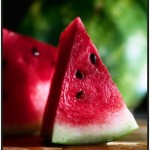This week the aftermath of the controversial saturated fat study continues, research uncovers more benefits of exercise, and scientists find a new food that might help reduce high blood pressure.
- Saturated Fat and Butter Battles. David Katz eloquently responds to Mark Bittman’s New York Times “Butter is Back” article. Although I love Mark Bittman’s food writing and use many of his cookbooks, I’m with Katz on this one. Mr. Bittman is not a scientist and doesn’t have the expertise to critique this study or make public health recommendations.
- In terms of critiquing the saturated fat study, these are the experts you should listen to: Scientists Fix Errors in Controversial Paper About Saturated Fats (Science Magazine), including Walter Willett (chair of the nutrition department at the Harvard School of Public Health) who is calling for a retraction of the study.
- Research reveals more reasons to keep exercising as we age: a higher level of physical activity is associated with lower risk of hearing loss in women, and physical activity might protect aging eyes from age-related vision loss.
- Confused about the diet advice? This article’s for you. Science Compared Every Diet, and the Winner Is Real Food. (The Atlantic)
- Exercise as Medicine? Physical activity can be an effective treatment for depression, yet pills are widely prescribed. Olga Khazan exlores the issues. (The Atlantic)
- Hearing encouraging words can make you a better athlete. Some food for thought for coaches and athletes (you may need to be your own cheerleader!) Alex Hutchinson’s Globe and Mail column explores how positive feedback can improve your technique and efficiency.

- Watermelon joins the list of foods that might help lower blood pressure. Other foods (previous research highlighted by UC Berkeley here) include low fat dairy, flax, raisins, chocolate, olive oil, beets, pistachios, pomegranates, fatty fish, whole grains, and hibiscus.